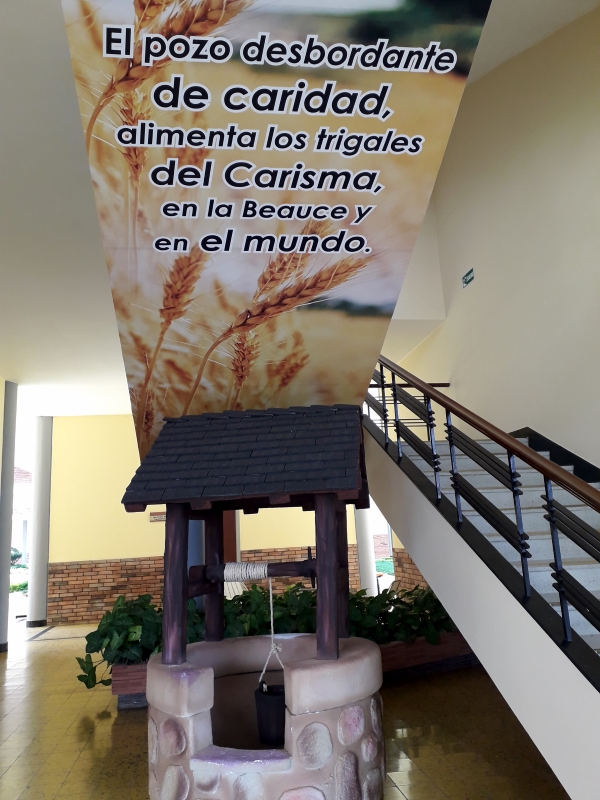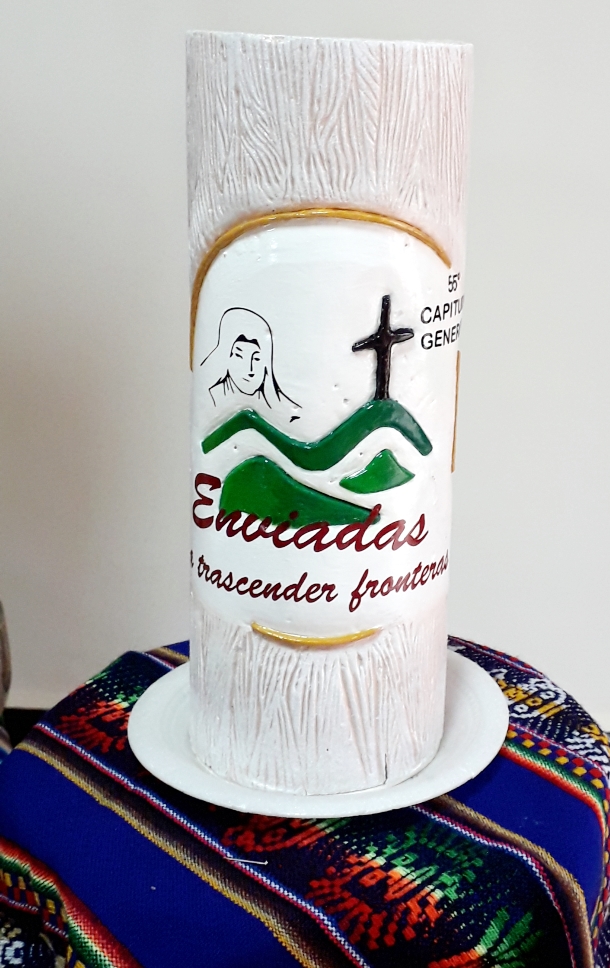Homily for the Eucharist of July 24, 2019
La Turena, Bucaramanga (Colombia), 07/24/2019, P. Franklin Buitrago, OP.- How fast the heart of human beings changes! From the songs of jubilation after the victorious passage of the Red Sea, we pass to the murmuring and the moans of the people in the desert.

Now, the freedom achieved seems nothing compared to the pots of meat with which Pharaoh kept the conscience of the Israelites numb. The text tells us that the Israelites prefer death to having to assume their new condition in the desert. That inconstancy of the human heart seems to be also the great impediment so that the seed scattered by the sower can germinate and bear fruit. After telling the parable to the crowd, Jesus explains its meaning to the disciples: the seed at the edge of the road is those who hear the word, but make no effort to understand it. The seed fallen on stony ground are those who receive it with joy, but it dries up when difficulties and persecution arrive because it did not take root. The seed among brambles is the one that, when sprouting, is drowned by the cares of this world and the deception of wealth.
Many times, our community meetings, chapters, retreats, renewals of vows are the opportunity to revive our ideals and dreams in the face of our religious life and the life of our communities. And how good it is because we really need those strong moments to rekindle our vocation and our Charism! But we all know that after much talk, making proposals and building projects on paper, there may be a tendency to return to the routine or to discourage us when difficulties arise.
Yesterday we talked about the path by referring to one of the biblical quotes that illuminate our retreat: This is the way, follow it (Is 30,21). But the way of the Lord is a way that inevitably passes through the desert, the cross, the difficulties and the renunciation of ourselves. When we come to religious life, we are encouraged by great ideals and by an almost limitless generosity. We have left everything for the Lord and we are willing to go on a mission wherever they send us. However, with the passage of time, external difficulties or internal fragilities make us suspicious and distrustful. How to keep alive those ideals and generosity that brought us to religious life? I think that, to a large extent, here is the key to this renewal of which we speak frequently.
The desert has its own pedagogy and the Lord uses it to educate his people. The hunger and thirst of that inhospitable place reveal to the human being his own fragility. Yesterday we also talked about that mysterious “spine in the flesh” that for Paul was a school of humility. Recognizing our own limitations, the brevity of our dreams and projects, is an opportunity to open ourselves to the grace of God as an inexhaustible source and only security within our life. The people of Israel in their weakness may become bitter with complaints and reproaches or may find themselves loved by a provident God who feeds them with bread from heaven. In this same sense, Saint Paul can exclaim: my grace is sufficient for you (...) because in my weakness the strength of God is manifested.
Sometimes we wish that our sisters and our brothers were better qualified, more efficient, more committed and more responsible people. We can complain about the reality we have ahead and long for the glorious years of the past in which illustrious men and extraordinary women entered to our houses and convents. Every longing for the past has some idealization. Surely the pots in Egypt were not as full of meat and bread as the Israelites imagined in the desert. Surely in our numerous communities of the past there were also many problems and difficulties. It is enough to shop around the archives of our congregations to realize that.
So before the inconstancy of the human heart, yesterday and today, before our personal and community frailties, the best we have left is to recognize that, ultimately, it is God who makes his Word fruit. He has done it before and will do it again. Some years the harvest will be one hundred times one, others sixty, others thirty. The important thing is that only in Him can we produce fruit: it is He who feeds us with the Bread of heaven, it is He who makes the works of our hands fruitful.

Comments
- No comments found




Leave your comments
Login to post a comment
Post comment as a guest